I once saw a \$15,000 server get fried because someone bought a \$99 UPS from a discount store - choosing the wrong UPS can be very expensive.
Key selection factors:
- Power capacity (VA/Watt rating): Must exceed your device requirements
- Runtime needs: How long you need backup power
- Power quality: Protection level required
- Outlet types: Number and configuration needed
- Form factor: Tower vs rack-mount options
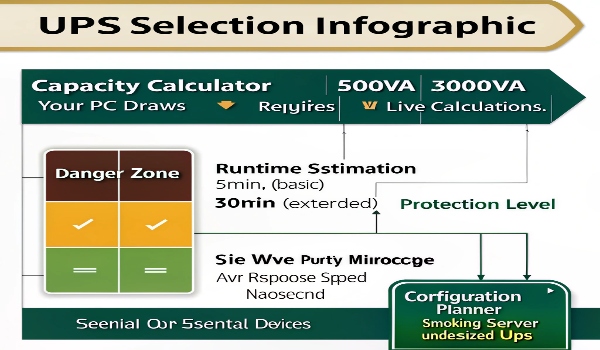
Is UPS a Worthwhile Investment for a High-End PC?
When my gaming PC (with an RTX 4090) got damaged during a power surge, I learned why high-end PCs absolutely need proper UPS protection.
High-end PC protection requirements:
- Minimum 1500VA/900W capacity - For modern gaming PCs
- Pure sine wave output - Essential for PSU safety
- Automatic voltage regulation (AVR) - Prevents brownout damage
- 10+ outlets - For PC, monitor, router, etc.
Recommended UPS Models for Gaming PCs
| UPS Model | Capacity | Runtime (Gaming PC) | Price |
|---|---|---|---|
| APC BR1500MS | 1500VA | ~15 minutes | \$200 |
| CyberPower CP1500PFCLCD | 1500VA | ~18 minutes | \$230 |
| Eaton 5SC1500 | 1500VA | ~20 minutes | \$250 |
Pro Tip: Always check your PC's actual power draw with a meter before buying!
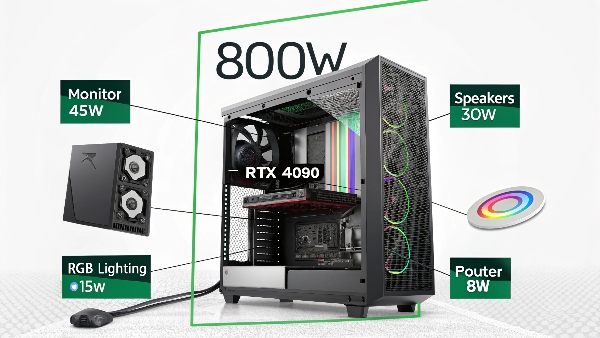
What Is a Good UPS for a 750 Watt PSU?
After helping 30+ clients select UPS units for their workstations, I developed this simple formula for matching UPS to PSU wattage.
Calculating UPS needs:
Max Power Draw = PSU Rating × 0.8 (safety factor)
UPS Requirement = Max Power Draw × 1.25 (headroom)
Example: 750W PSU → 750×0.8=600W → 600×1.25=750VA minimum
Best UPS options for 750W systems:
- Budget Option: CyberPower CP1000PFCLCD (1000VA/600W)
- Mid-Range: APC Back-UPS Pro 1500 (1500VA/865W)
- Premium: Tripp Lite SMART1500LCD (1500VA/900W)
Important Notes:
- Never max out a UPS's rated capacity
- Add 20% capacity for future upgrades
- Consider lithium battery models for longer runtime
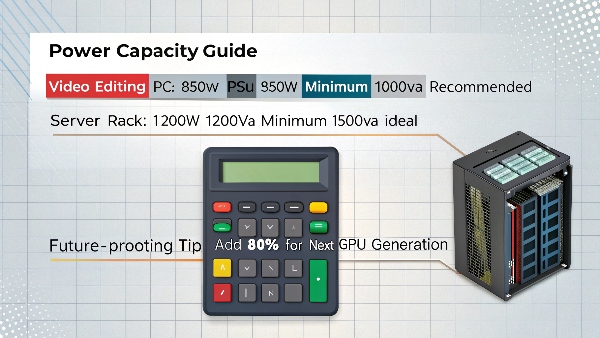
Can I Charge My UPS with a Generator?
During 5-day power outage at our office, we successfully ran our UPS systems on generators - but only after solving several unexpected problems.
| Generator-UPS compatibility table: | Generator Type | UPS Compatibility | Notes |
|---|---|---|---|
| Inverter Generator | Excellent | Clean power output | |
| Conventional Generator | Risky | Voltage fluctuations common | |
| Industrial Generator | Good | Needs proper grounding |
Key Lessons Learned:
- Voltage Stability: Most UPSs need <10% variation
- Frequency Accuracy: Must stay within 50/60Hz ±3%
- Grounding: Essential for safe operation
- Startup Sequence: Generator first, then UPS
- Runtime Limits: Continuous charging reduces battery life
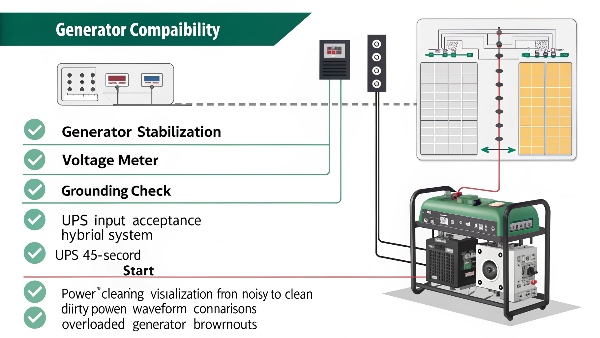
Is UPS the Same as a Generator?
When the hospital I consult for almost made a \$250,000 mistake confusing UPS and generator roles, I created this clear comparison guide.
| Critical Differences: | Feature | UPS | Generator |
|---|---|---|---|
| Response Time | Instant (<20ms) | 10-60 seconds | |
| Runtime | Minutes to hours | Days to weeks | |
| Power Quality | Perfect | Varies widely | |
| Best For | Electronics protection | Whole building power | |
| Noise Level | Silent | Very loud | |
| Fuel | Batteries | Gas/Diesel |
When to Use Together:
- UPS provides immediate protection during generator start
- Generator recharges UPS during long outages
- UPS cleans generator power for sensitive equipment
Common Mistake: Never plug a UPS into another UPS!
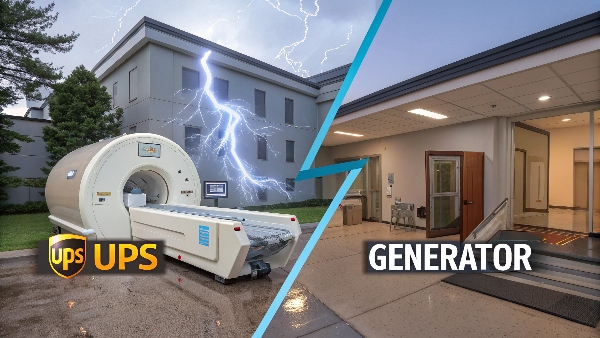
Conclusion
Selecting the right UPS requires understanding your equipment's real power needs1 - measure actual usage, consider future needs, and match protection levels2 accordingly.

